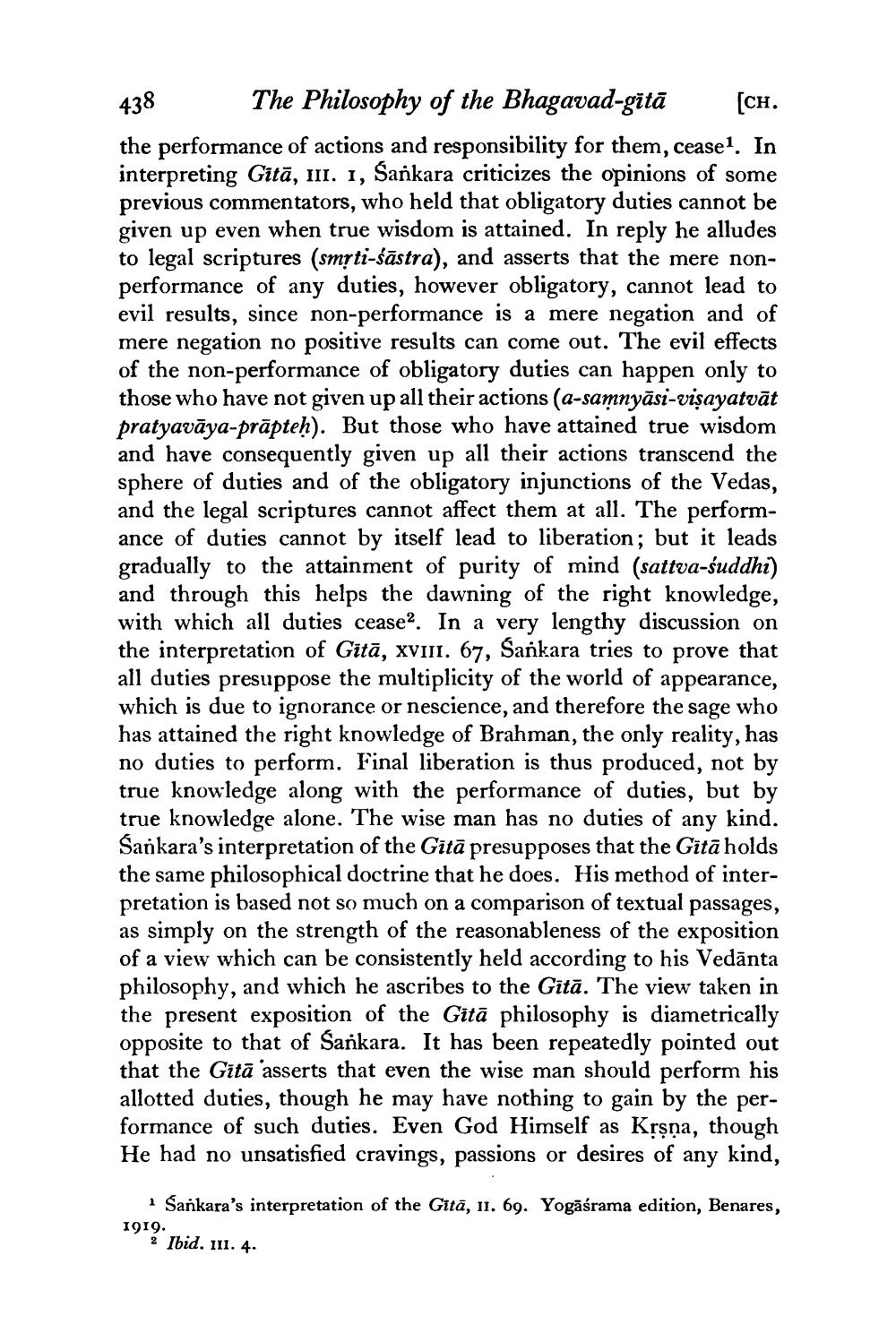________________
438
The Philosophy of the Bhagavad-gitā [ch. the performance of actions and responsibility for them, ceasel. In interpreting Gitā, III. 1, Sankara criticizes the opinions of some previous commentators, who held that obligatory duties cannot be given up even when true wisdom is attained. In reply he alludes to legal scriptures (smrti-śāstra), and asserts that the mere nonperformance of any duties, however obligatory, cannot lead to evil results, since non-performance is a mere negation and of mere negation no positive results can come out. The evil effects of the non-performance of obligatory duties can happen only to those who have not given up all their actions (a-samnyāsi-visayatvāt pratyavāya-prāpteḥ). But those who have attained true wisdom and have consequently given up all their actions transcend the sphere of duties and of the obligatory injunctions of the Vedas, and the legal scriptures cannot affect them at all. The performance of duties cannot by itself lead to liberation; but it leads gradually to the attainment of purity of mind (sattva-śuddhi) and through this helps the dawning of the right knowledge, with which all duties cease. In a very lengthy discussion on the interpretation of Gītā, xvIII. 67, Sankara tries to prove that all duties presuppose the multiplicity of the world of appearance, which is due to ignorance or nescience, and therefore the sage who has attained the right knowledge of Brahman, the only reality, has no duties to perform. Final liberation is thus produced, not by true knowledge along with the performance of duties, but by true knowledge alone. The wise man has no duties of any kind. Sarkara's interpretation of the Gitā presupposes that the Gitā holds the same philosophical doctrine that he does. His method of interpretation is based not so much on a comparison of textual passages, as simply on the strength of the reasonableness of the exposition of a view which can be consistently held according to his Vedānta philosophy, and which he ascribes to the Gitā. The view taken in the present exposition of the Gitā philosophy is diametrically opposite to that of Sankara. It has been repeatedly pointed out that the Gītā'asserts that even the wise man should perform his allotted duties, though he may have nothing to gain by the performance of such duties. Even God Himself as Krşņa, though He had no unsatisfied cravings, passions or desires of any kind,
Sankara's interpretation of the Gitā, 11. 69. Yogāśrama edition, Benares, 1919.
2 Ibid. 111. 4.




